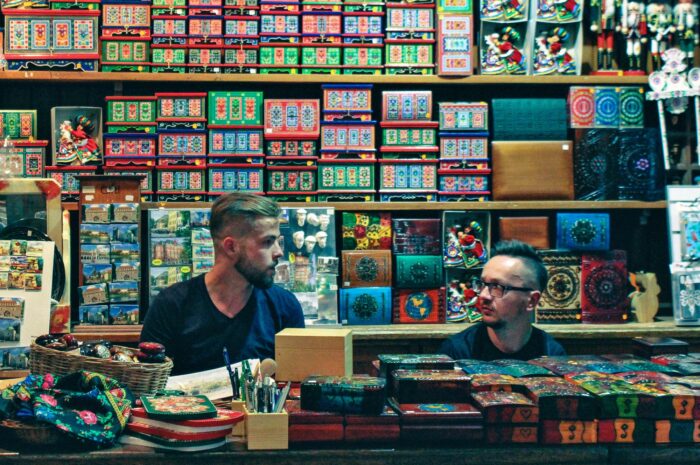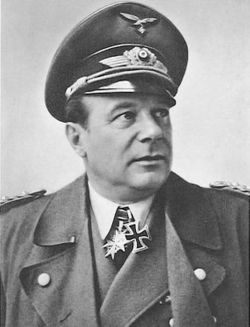
Packed away in a plastic tub in an attic, there are two small wooden boxes, the kind you might keep rings or trinkets in. Both are exquisitely crafted, both were purchased from artisans in the Cloth Hall in Rynek Główny, the main square of Kraków’s Old Town. One was bought by my mother, Ingelore Hartmann, in the mid-1940s. One was bought by me in 2007. That’s a lovely little family story isn’t it? A nice thread connecting mother and son through time and travel. Except it wasn’t tourism that brought the young Berliner to Kraków.

Mum had plenty to say about her life in Germany before and during the War, usually as asides during unrelated conversations. One particularly intriguing story, repeated often, was that she used to watch Ernst Udet (right), who went on to become a Generaloberst (Colonel General) in the Luftwaffe, and was a former WW1 fighter ace and friend of the Red Baron, von Richthofen, performing aerial stunts over Tempelhof Aerodrome in what she called a ‘little silver aeroplane’. Given that Udet had been a stunt pilot between the wars and that the Hartmanns lived within 100m of the end of the Tempelhof runway, this detail was too rich for Mum to have acquired elsewhere or made up. I have no cause to doubt the truth of it. In fact, this might have been the plane in question (note the Berlin Olympics livery – Mum was there too, but that’s another story).
Mum graduated from Secretarial College in Berlin and appears to have found gainful employment straight away. This is where the waters begin to get murky. She never actually let slip who her employers were, but she did say that the business she was involved in related to the redeployment of manufacturing capacity in the greater Reich to war production. That’s government business, isn’t it? This was the capacity in which she found herself posted to Kraków.
At this point, it’s pertinent to take a quick diversion through the ‘nature or nurture’ debate. In herself, Mum was a paradox. A German national who eventually married an Anglo-Indian (my stepfather) and embraced multiculturalism, she also harboured some grossly unacceptable racist views. Based on her time in Kraków, she would assert lifelong that ‘the Poles are all thieves’. She was not able to accept that the particular Poles she came into contact with there, all those years ago, might have had a specific reason for helping themselves to the occupiers’ toiletries. She could also not accept that Germany could field black football players (Antonio Rüdiger, specifically). ‘They’re not German,’ she would snort indignantly. To the end of her life, she called plastic carrier bags ‘Türkenkoffer’ (a Turkish suitcase). You can, of course, link all of these ideas directly back to her upbringing. Born in 1925, most of her formative years were spent immersed in pervasive Nazi ideology, something her nature subsequently struggled – and often failed – to overcome.
We know that Mum was in Kraków but that she finished her war in the Harz Mountains. Her story was that on reporting for work one morning in Berlin’s Postdamer Platz, all she found was a smouldering pile of rubble where her office had stood. She was redeployed to Wernigerode, a town in the Harz district of central Germany where she lived in a castle. But that too is another story. So her sojourn in Poland must have been the previous year (1943). She would have been 18 years old.
To be continued …
If you like fiction about this era, and how events in the past ripple through to the present, try my novel Pernkopf’s Atlas. You can find all the purchase links here.